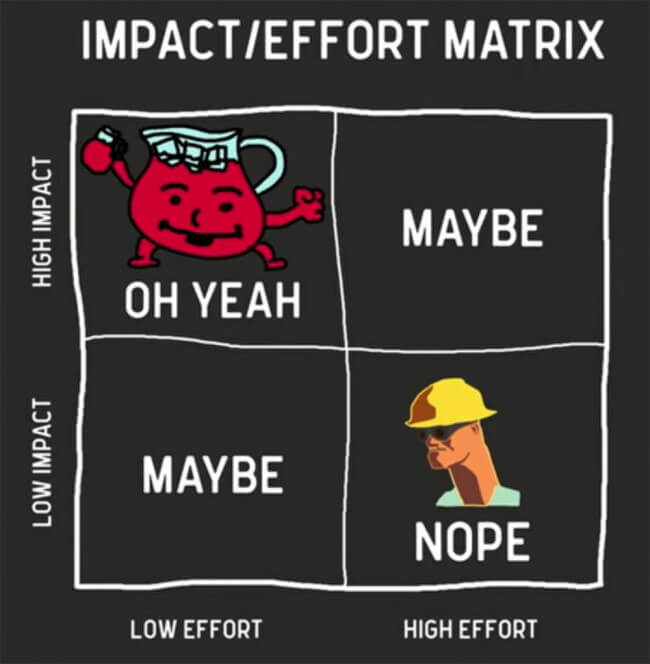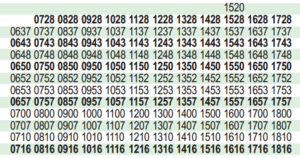How to Write an Essay in 1 Day

H ave you ever written an essay in 25 minutes? You have if you have ever sat for the SAT. While the stakes may be higher for a last-minute academic essay, the point is this: do not panic! Instead, read this six-step guide to writing an essay in a day:
1. Understand your goals
Whether you are writing a personal statement for a college or graduate school application, or an essay for a high school or college class, your assignment will have specific goals. Before you begin to write, review these goals. Clearly understanding your objective is essential when working with a shortened timeline.
2. Choose a topic
Under normal circumstances, you might devote several days to brainstorming a promising topic, and then you might write a detailed outline before writing and revising your essay over a week or two. When you are on a tight schedule, this is not possible.
So—write down the first three or four ideas that occur to you. If you cannot think of an appropriate topic, ask a parent or a friend to review the assignment with you. Do not spend more than 10 or 15 minutes on this part of your essay, as the execution ultimately matters more than the idea itself.
In addition, do not stress yourself about selecting the “perfect” topic. Without a topic, you will have no essay to turn in, and any essay is better than no essay. (It naturally follows that any topic is also better than no topic at all.)
3. Set deadlines
Establishing deadlines for a one-day essay is key. Budget 5-10 minutes for brainstorming, 15-20 minutes for creating an outline, and several hours for writing. You can also set aside an hour for feedback and review, and another hour for any necessary revisions. You should also allow for an hour-long break to recharge your mind. Finally, plan to submit your essay several hours before the deadline. A schedule with some flexibility will allow you to adapt to any unforeseen complications.
4. Arrange for reviewers in advance
Whenever possible, arrange for reviewers (such as your parents or friends) first thing in the morning, and let them know when they can expect a draft. When your deadline is in several days or weeks, you have the luxury of finding reviewers after you have finished your draft. With a shorter deadline, you will not have this ability. Be clear on the short turnaround time to ensure as smooth a review period as possible.
5. Outline your essay
There are many resources that can advise you on how to write a wonderful essay, but the purpose of this article is to shape that advice to the demands of a very short timeline. This includes resisting the urge to abandon the outline. Having an outline is even more important for a one-day essay than for a week-long project with a similar word count. A strong outline will keep your essay focused and organized from the start—which is critical when time constraints will limit your rewrites.
Your outline should not be detailed, and it should take no more than 15 or 20 minutes to complete. Determine your hook (see below for more information), and then jot down the threads that connect this moment to your central argument or idea.
6. Stay organized
When you are under pressure, your tendency may be to start writing and to see where your essay goes. Try instead to use a brief anecdote or emotional impact statement (i.e. the “hook” in your opening paragraph) to set the stakes for your essay. This is essentially your opportunity to state why your argument or idea is worth your reader’s attention.
Finally, remember that “perfect is the enemy of good.” Manage your expectations. Your goal should be to write a good essay, not a perfect one. If you have a compelling hook and a well-organized flow of ideas, check your writing for errors, and then send it in.
Brian Witte is a professional SAT tutor with Varsity Tutors , a live learning platform that connects students with personalized instruction to accelerate academic achievement. He earned his Bachelor of Science from the University of Washington and holds a Ph.D. from The Ohio State University
More from Varsity Tutors:
- 7 Last-Minute Exam Tips for Students
- 6 Tips for Surviving Finals Week
- 3 Reasons to Register for SAT Writing Test

More Must-Reads from TIME
- Breaking Down the 2024 Election Calendar
- Heman Bekele Is TIME’s 2024 Kid of the Year
- The Reintroduction of Kamala Harris
- What a $129 Frying Pan Says About America’s Eating Habits
- A Battle Over Fertility Law in China
- The 1 Heart-Health Habit You Should Start When You’re Young
- Cuddling Might Help You Get Better Sleep
- The 50 Best Romance Novels to Read Right Now
Contact us at [email protected]
College Info Geek
How to Finish a Huge Assignment or Project Overnight
C.I.G. is supported in part by its readers. If you buy through our links, we may earn an affiliate commission. Read more here.
The great American writer Mark Twain once said,
“Never put off till tomorrow what may be done the day after tomorrow just as well.”
When we live by that advice, though, we sometimes find ourselves chugging concentrated coffee at 2 a.m. in a valiant effort to stay awake and finish a huge project that’s due in 6 hours.
As productive as I’d like to think I am… I’ve been there.
If you’ve been there as well – or maybe if you’re there right now – this week’s video is for you. I’m not going to waste time lecturing you about the importance of planning, there are other videos for that – let’s just look at the best plan of attack when you find yourself in a time crunch.
Now, we’re going to look at some specific concepts related to planning and willpower in a minute – The Impact Effort Matrix, Ego Depletion – but let’s start with the foundation: location selection .
I think your location is vital when you’re working under pressure, and personally I like to pick my study locations based on their “vibe” – that is, what’s going on around me. I tend to favor coffee shops and libraries – I still go to my university library at times even though I’ve graduated – because I work well when I’m surrounded by other people who are also working. Also, close proximity to caffeine is helpful.
The most important part of location selection, though, is avoiding the “call of the pillow”. When you’re studying in a time crunch, it’s likely you’ll be doing it late into the night. That’s why you want to get as far away from your bed as possible.
The later it gets, the more you’ll start rationalizing how good a nap might be and the more you’ll start deciding that certain parts of your project don’t matter. So pick a place where going to bed would be more effort than finishing the next part of your project.
That piece of business taken care of, it’s now time to plan your efforts . Before you start working, take some time to break down your workload into individual parts. Then, it’s time to figure out which ones should get the bulk of your attention.
Dwight Eisenhower often remarked that,
“What is important is seldom urgent and what is urgent is seldom important.”
In the book The 7 Habits of Highly Effective People , Steven Covey popularized the “Eisenhower Decision Matrix”, which is based on this principle. In the matrix, tasks are categorized based on their importance and urgency.
When you’re in a time crunch, though, everything can seem urgent – so importance is the factor you should focus on in this case. To that end, let’s use a similar but more fitting tool – the Impact/Effort matrix .

Here, tasks in a project are given scores based on their impact to the overall success of the project and the effort it will take to implement them. To illustrate how this works, here’s an example from my life.
When I was a senior in college, one of my final projects was building a web app. My idea was called AMPanic, and it was an app that would require you to log in and tell if you’re awake before a certain time – otherwise it would send an embarrassing email to someone. This was actually the precursor to the early wake-up system I use now, which I detailed in this video .
With this project, though, I found myself in a time crunch trying to finish it. So I broke my project down into different parts that I’d have to code and prioritized them using this Impact/Effort matrix.
The core functionality – the code that would let you set an alarm and an email message, the code that would schedule and send the email on time, and the function to cancel the email if the user checked in on time in the morning – those required a lot of effort to build, but they also had the highest impact on the project.
On the other hand, some parts of the site – like the About, FAQ, and Contact pages – didn’t have as high of an impact, but they were low-effort tasks. Since they didn’t take much time to create, I made sure to include them to make the site look more complete.
The main element of the site that I chose NOT to focus on was the user registration and login system. A proper one needs functions for resetting passwords, but I decided that the core alarm setting functionality would be more important to my grade since that was the point of the whole project. So I used a login system I had written for an old project and didn’t bother creating a way to reset passwords.
In the end, it was a worthwhile decision; the alarm system was more advanced than most of the other projects in the class, so I ended up getting an A.
To assign Impact/Effort scores to each component of your project – or each assignment if you’re juggling multiple – consider the following factors:
- What the core deliverables are
- The grading criteria for the project, what which components count for the most points
- What percentage of your grade each assignment counts for
- How much each component will contribute to the knowledge you need to have for tests, which usually impact your grade the most
Once you’e assigned scores to each component, I think it’s a good idea to tackle the ones with the highest impact and highest effort first. This is due to Ego Depletion – a phenomenon explained in Daniel Kahneman’s book Thinking, Fast and Slow . Citing research from the psychologist Roy Baumeister, he reveals that:
“…an effort of will or self-control is tiring; if you have had to force yourself to do something, you are less willing or less able to exert self-control when the next challenge comes around.”
Use the bulk of your willpower to complete the harder tasks first; that way, you’ll only have to deal with low-effort, high-impact tasks when you’re feeling drained.
That’s where we’re going to close for this week. If you select your location well, plan based on impact and effort, and tackle your tasks in a way that utilizes your willpower effectively, you’ll make if through your time crunch in one piece.
Need help finishing a personal project you’ve been procrastinating on? Read this next .
If you’re unable to see the video above, you can view it on YouTube .
Looking for More Study Tips?

You’ll find more tips on planning, study environments, and maintaining willpower in my free 100+ page book called 10 Steps to Earning Awesome Grades (While Studying Less) .
The book covers topics like:
- Defeating procrastination
- Getting more out of your classes
- Taking great notes
- Reading your textbooks more efficiently
…and several more. It also has a lot of recommendations for tools and other resources that can make your studying easier.
If you’d like a free copy of the book, let me know where I should send it:
I’ll also keep you updated about new posts and videos that come out on this blog (they’ll be just as good as this one or better) 🙂
Video Notes

- Eisenhower Decision Matrix
- Impact/Effort Matrix
- Ego Depletion
What other topics related to working under tight deadlines would you like to see covered in the future?
Do you have any additional tips? Share them below 🙂
If you liked this video, subscribe on YouTube to stay updated and get notified when new ones are out!
Images: Eisenhower , Twain , Twain living room , James Cameron , ocean trench , Everest , wall of books , Big Ben , coffee shop
11 Tips to Writing Your College Admissions Essay in One Day

You’ve Only Got One Day To Write Your Essay?
You waited until the last minute, didn’t you? No judgment here, just help from people who’ve done the exact same thing as you. Don’t give up! It’s better to pull the mother of all all-nighters than to skip your college application essay.
1. How Can I Write My Personal Statement In One Night?
Admitting you have a problem is first step, right? Fortunately other people have been there before you. Stand up and say, “My name is ________, and I’m a procrastinator.” (magoosh.com)
2. Last-Minute Tricks From Teen Vogue
These goes know their market, don’t you think? Maybe you’re trying to do too much. After all, how much time have you got? (teenvogue.com)
3. You’re Still Going To Need A Great Idea
Brainstorming is worth the time it takes because a great idea gets you halfway there. At least that’s what you should tell yourself to get started! (allcollegeessays.com)
4. Maybe You Need a System
The Spartan System has saved students’ bacon for years. Why not apply it to your college admissions essay? (huffingtonpost.com)
5. Even All-Nighters Need the 3 P’s
If you’ve determined to do the job well, you still need all the elements that make you application essay work well. That includes, Patience, Persistence, and Pop-Tarts—OK, maybe not that last one. (huffingtonpost.com)
6. Last Minute Tips For Great College Essays
If Time magazine writes an article like this one, at least you know you’re not alone. (time.com)
7. Just Hours To Go: 5 Tips
You need a calm voice like this one: “Don’t freak out. You can still do it. (wnyc.org)
8. What To Say When You Have Nothing To Say
It’s not really true: you do have something to say. Plus, you have to say something if you’re going to get this thing written. (greatcollegeadvice.com)
9. Six Steps You Can Do In One Night
The fewer the steps, the better you chances of crossing the finish line. This isn’t a last-minute post, but it’s great advice, and more important: it’s do-able. (huffingtonpost.com)
10. Tip #5: Take Risks
Is there a better time to take risks when you’re down to the wire? Perhaps the college professor who wrote this piece didn’t have this in mind when he wrote tip #5, but it certainly applies now. (quintcareers.com)
11. Write Your College Essay In One Night
Honestly the most creative and fun advice you’ll see if you find yourself in this dreadful situation. (collegeessayguy.com)

- How It Works
- Prices & Discounts
How to Finish an Essay Last Minute and Do it without Losing Quality
Table of contents
Share this article
Achieve Academic Success with Expert Assistance!
Crafted from Scratch for You.
Ensuring Your Work’s Originality.
Transform Your Draft into Excellence.
Perfecting Your Paper’s Grammar, Style, and Format (APA, MLA, etc.).
Calculate the cost of your paper
Get ideas for your essay
What are your chances of acceptance?
Calculate for all schools, your chance of acceptance.
Your chancing factors
Extracurriculars.
How to Write a Last Minute Essay
←What If I Don’t Have Anything Interesting to Write About in My College Essay?
8 Tips for Overcoming Writer’s Block→

Ooops! You waited until the very last minute to begin the college application process, and it’s probably stressing you out. But never fear – CollegeVine is here to make sure that your procrastination impacts your essay as minimally as possible.
We’ve included a guide for the 30-day essay, the 15-day essay, and the 3-day essay. If you have multiple essays to write in a short time, you can follow the appropriate guide for multiple prompts simultaneously, or offset it by a few days.
The 30-Day Essay
At this point, you want to focus on ideas. You have the freedom to spend a few days figuring out which direction your essay is going to take, so take your time to think about what you want to convey in your essay. Find four to five topics to begin with—you can ask your parents, friends, and teachers about what they find interesting about you in order to speed this process up. Try to choose anecdotes from your life that, in retrospect, you learned from, and these stories will inform your topic. Even the shortest, most insignificant moment can make a great essay if it shaped you in some way. If you are writing a “why this school” essay, make a list of reasons why you are applying. Do appropriate research to find strong reasons that show your genuine interest in the school.
Now that you have a few potential topics, think about how each one would respond to the prompt. Spend 15 minutes outlining each one, using your prompt to guide the outline. In essays that ask you to tell a story, a good topic should write itself and finding a strong essay idea will nearly always be more productive than forcing a story to respond to the prompt. For “why this school” essays, focus on the structure and connection between your reasons. Giving this step the necessary hours now will pay off later. Narrow your list of potential topics to your top one to three choices.
Now it’s time to put pen to paper. If you’re having a hard time, try writing in different environments—coffee shops, your room, or a library, for example—and alternate between topics, and remember that at least at this stage, more words is better than fewer; there will be a step to polish your writing later.
By day 14, you should have written one rough essay for every “top choice” topic you decided on during day 5. This means that you should now have anywhere between one to three potential essays for a single prompt.
If you do have more than one essay written, it is now time to choose a single essay. Out of the two or three essays you have written in the past couple days, there is probably one that speaks to you more than the rest. If you’re having a hard time, think about which of the topics you’d like to spend another two weeks with, and try to figure out which one says the most about you. Essays with twice the number of words allowed or more should be ruled out; the anecdote is probably too long, or the topic requires too much detail to be effective.
Break days! Distance is important when writing. Take a break from your essays so that you can continue to edit with a fresh mind. These are great days to give your essay to other people to edit—school faculty members who know you well, a coach/music teacher, your parents, and one or two friends. If you are over the word limit, ask specifically for these editors to help you cut down the essay.
Reading your essay with a fresh mind should help you catch big, structural edits. Your first round of edits should involve content edits; you’re looking for what the essay really says about you as a person, and whether that was what you were trying to get across. How does the sentence flow? Does the essay move itself?
Break day! Get some more distance from your writing.
At this point, you might have received some edits back from the people you handed your essay to. Go through each of the edits and decide which suggestions you plan to take, and which seem to alter your personal voice or which don’t match the essay stylistically. Try to stay objective as you review these edits—some of them will be detrimental. If you can’t see why the change was made, it’s probably best to ignore it. If multiple people give you the same feedback, however, you may want to give it some thought.
Implement the edits that you liked. Then read through the essay again and make sure that there are no structural edits or content edits that still need to happen.
These days are the middle stage of your editing process. You’re looking for words that don’t fit the style of the essay, or which could be improved, as well as sentence flow problems. Are all your sentences the same length? Is one paragraph not as well written as the rest of the essay? This should also be the time that you cut words. If you are still more than 70 words over, try to cut full sentences. Otherwise, start by cutting unnecessary phrases and words.
Start doing smaller grammatical edits. A great way to catch edits is to record yourself reading your essay aloud and then listening to the recording. As you go through this process, highlight, mark, and comment on your essay. Afterwards, go through and use your notes to fix word flow, word choice, and grammatical mistakes.
Break day! It’s close to the deadline, we know. Take a break anyway – you need and deserve it.
Last minute edits! Spend some quality time with your essay by just reading it every few hours. Try to catch any small mistakes or random sentence flow problems. (If you suddenly realize that you hate your essay, reference the 3-Day Essay below. Be sure that you aren’t being hyper-critical, though—you may just hate the essay because you’ve spent so much time on it).
Congratulations! Your essay is done! It’s time for you to catch a break.
The 15-Day Essay
Spend a few hours working on a list of ideas that could become potential essays. Choose one and make an outline.
Write your essay!
Ask a few people who you think would give constructive comments to read your essay— teachers, parents, and friends. Spend some time doing content and structure edits. Figure out what you want the essay to convey about your personality, and determine whether your essay actually gets this across.
Do some structural editing. Pay attention to sentence flow, the length of paragraphs, overall organization. If your essay is too long, try to cut down on unnecessary information. Pay close attention to the way that you have structured paragraphs and make sure each one makes sense.
Take a break!
Synthesize the comments you received on your essay. Decide which suggestions you want to use and which ones you don’t. If you can’t figure out why a particular suggestion was made, ask the person who gave it. After you’ve gone through all the feedback, edit your essay accordingly.
Cut your essay down to the word limit – ask yourself which anecdotes, details, and adjectives are truly necessary. If you’re having trouble, reference the editors that you spoke to previously.
Work on grammatical and other small edits. Look for minor things that need to be corrected, such as punctuation and word choice. This process requires a few dedicated hours. Aim to really spend some time polishing your language. Reading your essay aloud can be a productive way to accomplish this.
Take a break from your essay!
Spend the whole day with your essay. Every few hours, do a reread and see if you can catch any small last minute edits. Don’t try to change anything major—you don’t have time!
Submit the essay and take a good nap. You’ve finished!
The 3-Day Essay
Don’t panic. This is doable, but it’ll be a busy few days. Spend the morning coming up with ideas for your essay. Choose one, and use the afternoon to write it. Email this draft to teachers, and show it to your parents. Then, take a few hours off, and later at night, read it through to edit for content. Does the essay say what you intended it to?
Check your email throughout the day. When you get edits back, start incorporating those into the essay. Be picky about which ones you choose to include because you don’t want to take your own voice out of the essay. Spend the day doing structural edits. Every hour, take a thirty minute break from editing. By the end of the day, you should have an essay that fits within the word limit and also has a strong flow. The organization should be good, and you should be able to see how the essay builds upon itself.
DO NOT OPEN EDITS. If any of your readers have replied to your email, don’t open them at all. At this point, the extra edits will just freak you out, and you don’t have time to do major fixes. The name of the game today is small edits; look for grammar, word changes, and minor sentence structure changes. When you’re finally done, take a breath; you can finally relax.
The 1-Day Essay
Of course, writing a college essay the day before it’s due is far from ideal, but we know there are probably some of you out there who will find yourself in this situation. Don’t worry, it is not hopeless. Instead of trying to fit a step-by-step plan into a tight timespan, we’ve compiled some general tips to help you churn out that essay in one day.
Choose your prompts strategically.
If you already know what you’re going to write about, great! Move on to the next tip. If not, see if you might have already written an essay to any of the available prompts. Especially if the prompts are open-ended, you may have already addressed a potential topic in previous school papers. Look through your files to see if you have any essays that you might be able to recycle. The key here is recycle : it goes without saying that you shouldn’t use a previously-written essay word for word for your college submission. You should still take time to tailor it to the prompt and make sure that it conveys your message clearly, whether it’s illustrating your strengths or expressing why you wish to attend that particular college.
Make an outline.
Yes, you may feel that you don’t have time for extensive planning, and that you should just jump in and get everything on paper. Try to rein in this urge and take one hour to make a brief outline, spelling out your “thesis” and all the points you want to address. This will help keep your thoughts in order as you write, especially in such a time-constricted context.
Get that distance, re-read, and edit.
It’s always tempting to just click submit once you’re done with a project you worked long and hard on, to feel that relief when you know it’s done. However, especially given the rushed nature of a last-minute essay like this, the revision and editing process is crucial, even if it’ll be minimal. Blatant errors will reflect poorly in your application!
So when you’re done writing, set it aside for a few hours. Then, reread it, and make any necessary corrections—grammar mistakes, typos, sentence flow. When you’re sure it sounds they way you want it to, then you can submit.
Wrapping it Up
Procrastinating on your college essays isn’t the best way to go, but it can be saved. If you haven’t started applying yet, start your college essays as early as possible! Longer breaks between editing sessions will allow you to get the distance necessary to be objective, and to produce the best quality essay you can.
Want help with your college essays to improve your admissions chances? Sign up for your free CollegeVine account and get access to our essay guides and courses. You can also get your essay peer-reviewed and improve your own writing skills by reviewing other students’ essays.
Related CollegeVine Blog Posts

Save £500 when you enrol by 30th September!
- How to do a large amount of work in a small amount of time: advice from a veteran of rushing, botching, and bashing it out

1. Get in the zone
I don’t know about you, but I have a dozen little rituals I have to perform before I sit down to do a big slog of work. In general, I make it a rule to work in the library or university, because I find working at home, with all its possibilities of making and drinking tea, drifting off to watch TV, or being drawn into long conversations with my housemates, too distracting.
But when I’m really up against the clock, or even about to start what I know will be an all-nighter, I prefer to be in my room, with easy access to vital things like coffee, food and the shower. (N.B. There is nothing like a shower for waking yourself up in the middle of a miserable work-session. Just don’t do what I did one particularly inauspicious Wednesday at 4am: fall asleep sitting down in it with a foot covering the plug, and wake half an hour later under a jet of now-freezing water to find that you have transformed your bathroom into a giant soapy sea).

But back to the rituals. Before I do any serious, or seriously rushed, work, I’ve got to do a number of things to ‘get in the zone’. This might sound like elaborate procrastination — which, in reality, it most definitely is — but if I don’t do these little things, I find my concentration is poor, and my mind constantly wanders. First, my room has to be absolutely, books-in-alphabetical-order, spotless — mess is incredibly distracting, and when I’m working I want to use all the space on my desk. Plus, while you’re tidying you get to watch videos of cats falling over on YouTube. Next, I have to have a strong coffee (which I never drink more than a few sips of before remembering that I hate coffee and it gives me a headache — but it smells nice and is somehow a very reassuring thing to sit next to). Third, classical music doesn’t work for me; while I’m working, and especially at night, I find it keeps the mind sharp to blare out tragic noughties techno music. In particular, the songs of the ultimately unsuccessful Australian band Pendulum played at approximately a million decibels are so unpleasant they keep one constantly skittish with adrenaline, hammering out a thousand questionable words an hour while simultaneously imagining you’re in a warehouse rave. Finally, and most embarrassingly, I have a pair of leggings called my essay leggings that I like to wear while I’m working. They’re very comfy (and holey) and haven’t been replaced since my first year of university, because they’re somehow magically conducive to getting lots done in very little time. Now, the line between preparing oneself for work and procrastination is always thin, and one I continually find myself on the wrong side of. Your rituals might look very different to mine, and perhaps take a little less time. But if you need to do certain things to change your mindset from play to work, I’d advise you do them.
2. Work out exactly what you’ve got to do
Now that you’re sitting comfortably at your desk in your spotless room, work out exactly what you’ve got to do — and how long you’ve got to do it. Make a list of your tasks in order of priority, what they involve, the date they’re due in and how long you realistically think they’ll take. Your list might look something like this:
- Write out labels for Art coursework (2 hours, due tomorrow)
- Write self-analysis for Art coursework (3 hours, due tomorrow)
- Finish researching, plan and write History coursework essay (12 hours? 2 days? Due Friday)
- Finish Physics lab report (2 hours, due Thursday)
- Maths problems (3 hours, due tomorrow)

Now, for some of these tasks it will be absolutely essential that you hand the work in on or before the deadline. For any task that counts towards your coursework, or an exam, you’ll usually lose marks if they’re late — in my university, we would lose 5 marks out of 100 if an essay was handed in one minute after 12pm on the day of the deadline, and a further 10 if it was more than a day late. For these tasks, you absolutely can’t mess about — they should sit right at the top of your list of things to do, and be the first thing you get out of the way — and the ones you put most effort into getting right. But, even though it won’t make you very popular with your teachers, sometimes you’ve got to accept that you can’t do everything you’re expected to in a small amount of time. When I’ve got a big deadline coming up, I jettison everything else: I tell people I can’t make other commitments, even if that annoys them, and if I haven’t got time, I simply don’t do less important pieces of work. On the list above, for example, I might decide that only the pieces of coursework were really important, and that I wasn’t going to bother handing in the lab report or the Maths problems. Of course, all this is advice for an emergency situation: if you’ve got the time to do everything you need to, then deciding that you won’t is probably not the best strategic move and will mean you have to endure hours of unnecessary telling-off.

Make a timetable detailing exactly when you’re going to do each of the things on your list. Make sure you plan enough time for each task rather than being overly optimistic — you’re going to stick to this timetable no matter what . Think about the times of day when you work best, and how tired you’re going to be at various stages of the day/night/week you’re mapping out — the morning of your deadline, for example, when your eyes are itchy with tiredness and your brain about as much use as its equivalent weight in mincemeat, is probably not the best time to be proof-reading or tackling difficult Algebra problems. I study English and consequently write lots of essays, and I find that I can read and take notes at pretty much any time of day, but planning and writing are tasks I can only really do well first thing in the morning. Once you’ve made your plan, sit back and take a deep breath — it might be a rush, and you might not see sunlight for the next week, but it is possible to do everything you need to in the time you’ve got. All you need to do (and this is the important bit) is make sure you stick religiously to your timetable. Here’s how:
4. Let things be less-than-perfect

If you’re still not happy with something near the end of the time you’ve allotted for it — tough. Finish up and leave it in its imperfect state — if you’re lucky, you might have time at the end to come back to it, but it’s much more important to stick to a schedule which will allow you to get everything done than it is to perfect one part of the task. This means not reading that extra useful-looking article, not toying with the wording in an introduction any longer, and leaving a problem you just can’t solve. Remember — when you’re working on any task, it’s completely normal that that task will feel like the most important one — but it’s important to take a step back and gain some perspective over your whole project. I’m constantly messing up because I find it really hard to leave things alone – – for example, I wasn’t happy with my dissertation last year the day before I handed it in, and decided to stay up all night before the deadline restructuring and rewriting the last 3,000 words before I’d even begun my referencing or conclusion. This meant (as I’m sure you can guess) that the section I rewrote was garbled and full of spelling mistakes, my footnotes and bibliography were a total mess and my conclusion was 5 lines long- not exactly what I’d planned when I decided to begin my noble rewriting mission, and not exactly the formula for a winning dissertation. Polished and finished, if slightly flawed, work will always make a much better impression than something messy and incomplete, even if it’s more carefully thought out — it actively irritates examiners to find silly mistakes or signs of haste in things they’re marking. Take it from me, look at the bigger picture and simply move on .
5. Be selfish

I’ve got a friend who actively refuses to make any plans other than a quick coffee for about four weeks before any deadline. Sometimes she doesn’t leave her house for days, and while she’s working she lets other people cook for her and tidy up her mess. Last year she didn’t go to her boyfriend’s birthday party because it was the week before a talk she was preparing. Now, this might all sound a bit mad, but my friend always does really, really well at everything she puts her mind to. Basically, in quite an extreme way she’s got her priorities straight — most of the time she’ll do anything for anyone, but when she’s got important work on her plate, she’ll say honestly that she needs to concentrate, and just can’t make other commitments. I, meanwhile, work in the absolute opposite way. I let friends come to visit me the week before a deadline because I don’t want to annoy them by cancelling, and am anxious about work and cranky for the whole time they’re there. I’ll go to the library with someone else but get annoyed when we distract each other. I end up getting so stressed out over all the commitments I’ve made that I can’t concentrate even when I’ve actually got time to work. I’ve come to conclude that my friend’s got it sorted. When you’ve got stuff to do, be selfish. This is one of very few chances you’ll have in your life (apart from, if you’re a girl, maybe your wedding) to be totally unreasonable, self-centred, and rude to everyone around you. Like a mad cross between Professor Snape and Kim Jong Un. Get your mum to make you dinner but refuse to sit and eat it at the table. Cancel plans, leave a mess. Refuse to read someone else’s work or do anyone a favour. Your friends might not like the new crazy you, but you’ll probably annoy them just as much by being irritable and stressed than you will by being selfish — and if you pick the latter course, you might actually get stuff done.
6. Do not entertain the thought that you might not finish
With the energy I’ve spent over the years asking for extensions, making up excuses or writing cringing apology emails to tutors and employers explaining that I just haven’t done things, I could have written novels. Stuff it, I could have written the Iliad . Extensions and the like might feel brilliant in the short term, but they’re not the solution to anything — you’ll still have to do the work one way or another, and you’ll annoy people and complicate your own life in the process of putting it off.
7. Just do the work
This is fairly self-explanatory. Though this article has tried to show that you can make things seem easier and more surmountable by organising, rationalising, and preparing, there are no magic solutions that can make you work miraculously quickly. There’s no substitute for sitting down, closing the door, turning off the internet and just doing your work . It might not be exactly fun, but it’ll feel worth it when you’re done, and then you can sleep and relax properly without feeling guilty or stressed. Got any top tips for getting things done quickly? Let us know in the ‘Comments’ section below!
How to write 10,000 words a day
One of the most popular posts on the Thesis Whisperer is How to write 1000 words a day and not go bat shit crazy . Last year a Twitter follower brought to my attention a post called How I went from writing 2000 words to 10,000 words a day by the fiction writer Rachel Aaron.
I did a double take.
Can you really write 10,000 words a day? Well, Rachel says she can, with three conditions:
1) Know what you are going to write before you write it 2) Set aside a protected time to write, and 3) Feel enthusiastic about what you are writing
I read the post with interest. Much of what Rachel did conformed with what I suggest in my earlier post, but I couldn’t bring myself to really believe Rachel’s productivity claims. To regularly write 10,000 words: It’s the dream, right? Imagine if you could reliably write 10,000 words a day, how long would it take to finish your thesis… A week? How about a journal paper – a day?
Impossible!
Or so I thought.

The Thesis Bootcamp formula was developed by Liam Connell and Peta Freestone of the University of Melbourne. Thesis Bootcamp (and the veteran’s days which follow) is a total program designed to help late stage PhD students finish their thesis document (In some countries this document is called the ‘dissertation’, but I will use the Australian term ‘thesis’ here). The Thesis Bootcamp concept is simple – put a whole lot of PhD students in a room for a whole weekend and set them the goal of writing 20,000 words each.
Yes – you heard me right.
At every Thesis Bootcamp we have run, at least one student will achieve this goal, and many write many more words than they thought they would. In a previous post Peta Freestone and Liam Connell wrote about the ideas behind Thesis Bootcamp . In this post I want to reflect on Rachel Aaron’s threefold advice and put in the context of thesis writing.
1) Know what you are going to write before you write it
Composing a Thesis requires you to do different types of writing. Some of this writing is ‘generative’ in that it helps you form and articulate ideas by… just writing as much as you can, not as well as you can. It works best when you don’t second-guess yourself too much. The philosophy is ‘make a mess and then clean it up’. Perfectionist writers have a problem doing this, which is why we see so many perfectionists at our Bootcamps.
At Bootcamp we teach our students to focus the generative writing energy to productive effect. An important step in this process is for the student to spend at least a week making a ‘Thesis map’ before they come to Bootcamp. The map is essentially a series of sub-headings which the students use as prompts for composing new text, or re-using existing text.
Students, particularly those in the humanities and arts, tend to agonise over the Thesis document ‘structure’. I think the anxiety stems from the idea that ‘Thesis structure’ is some kind of perfect platonic form they need to discover.
It’s important to realise that structure is made, not found. Thesis structure is strongly influenced by disciplinary precedent and the content of the Thesis itself. A history PhD it might follow a timeline from the past to the present; a science PhD might echo the order of the experiments that have been performed. But multi-disciplinary PhDs, or PhDs in ‘polyglot’ disciplines like education, do not have comfortable traditions. This means you’ll have to make the structure up. Try the following technique:
- This Thesis contributes to knowledge by…
- This Thesis is important because…
- The key research question is….
- The sub-questions are….
- Decide how long your Thesis will be. Most universities have a maximum word count. Aim for your Thesis to be at least 2/3 of this total (it’s likely you will write more than this, but this gives you some wriggle room).
- Make a document with chapter headings and word counts next to them. Include an introduction of 2000 – 3000 words followed by up to seven chapters of equal length and a conclusion of around 4000 – 5000 words.
- Under the conclusion heading write a rough list of points you think will go in there (hint – these should be answers to the research questions you have posed). Study these closely – have you got data, theories, evidence and arguments to support these conclusions? These concluding points, singularly or in combination, will form the ‘key learnings’ of the Thesis – the knowledge and ideas you want your readers to absorb.
- Each chapter should have at least one key learning in it, maybe more. Under each chapter heading note the key learnings in the form of a brief synopsis of up to 300 words. This synopsis is like a mini abstract that explains what the rest of the chapter will be about.
- Then make a list of the material you will include in the chapter as dot points. Don’t worry about the gaps and stuff you haven’t written yet – just make a note of them. These should be short sentences that will act as subheadings
- Now ask yourself: If, at the end of the chapter, I want the reader to be convinced of the validity of this key learning, what needs to appear first? What comes next? And so on. Rearrange or write new subheadings as you go until you have arranged all the subheadings of the chapter in a way that tells the research story.
Following these steps will help you to create the Thesis map – but it’s important to remember that this is merely an aid to writing, not a plan set in stone. You can change, add and move stuff around as you write.
In our Thesis Bootcamps we ask students to just pick a spot on this map and start writing as fast as they can, not as well as they can. Does this generate perfect thesis ready text? Not necessarily, but many students say that the writing they produce at Bootcamp is clearer than the writing they did before it, when they are worrying over every word. I think the thesis map is a big part of this clarity because it keeps the focus tight.
This organising technique works best for very late stage thesis students, but it can be a way of creating order at any time in your journey and working out what you need to find out or write more about. I’ve made a downloadable cheat sheet which shows you my own Thesis map, generated by the above method so you can make one of your own.
2) Set aside a protected time to write
I’ve written so much about this, so I wont rehash it all here. If you are interested in some techniques and ideas for creating protective writing time, have a look at the following posts:
- Another way to write 1000 words a day
- Office or cafe?
- Shut up and Write!
- Detox your desk
- A visit from the procrastination fairy
3) Feel enthusiastic about what you are writing
I think this is the ‘secret sauce’ in the 10,000 words a day recipe. Rachel Aaron did some deep analysis of her productive writing days and compared these to the occasional not-so-productive days. The days Rachel was able to write 10,000+ words were the days she was writing scenes she had been ‘dying to write’ – she called these the ‘candy bar scenes’. Days where she found it hard to muster 5000 words a day she was bored with what she was writing:
This was a duh moment for me, but it also brought up a troubling new problem. If I had scenes that were boring enough that I didn’t want to write them, then there was no way in hell anyone would want to read them. This was my novel, after all. If I didn’t love it, no one would.
In the fiction world the answer to Rachel’s dilemma was simple – make the boring scenes more interesting! Unfortunately in Thesis World this is not always possible. There will always be parts that are functional and unexciting; I call these the ‘dry toast’ sections – you need to do a lot of unproductive chewing before you can swallow.
There’s a term that describes this process in gamer culture – ‘grinding’. Grinding is being forced to perform the same action over and over again before you can ‘level up’ in the game and get more powers / weapons / armour or whatever. The level up is the pay-off.
One of the most genius ideas Liam and Peta incorporated into Bootcamp was the squeezy lego blocks. We give these out for each 5000 words written in a particular colour order: green, blue, red and gold. The blocks clip together to make a little lego ‘wall’ that the students can display at their writing station. When first presented with the idea of the blocks the students laugh, but all too soon, they are typing furiously with single minded purpose – to get the next block. We have a little ceremony every time someone gets a block, clapping them as they walk up to write their name on the board. It’s cheesy, but it works to turn writing from a source of pain to a celebration. So think about how to reward yourself for every 5000 words written.
Up for the challenge? Have a look at the testimonials on our ANU You Tube channel . I’d love to hear about other ways of doing writing marathons and what you think about this kind of ‘binge writing’.
If you are an ANU student, click this link to find out how to get involved in Thesis Bootcamp on campus .
If you are in the UK, Dr Peta Freestone is available to run Thesis Bootcamp in your university.
Related Posts
Rachel Aaron’s post ‘How I went from writing 2000 words to 10,000 words a day ‘
“How to write 1000 words a day and not go bat shit crazy”
Video testimonials on the ANU Youtube channel
Love the ThesisWhisperer?
I cover all the expenses of operating the Thesis Whisperer out of my own pocket . If you enjoyed this post and want to support the work, you can buy me a virtual coffee here or consider becoming a $1 a month Patreon
Alternatively, consider buying a copy of one of my ebooks directly from this site:
Tame your PhD The Year of Living Covidly TextExpander for Academics
I’ve authored, co-authored or been involved with eight books now – you can find them all on the Buy Books page
Share this:
The Thesis Whisperer is written by Professor Inger Mewburn, director of researcher development at The Australian National University . New posts on the first Wednesday of the month. Subscribe by email below. Visit the About page to find out more about me, my podcasts and books. I'm on most social media platforms as @thesiswhisperer. The best places to talk to me are LinkedIn , Mastodon and Threads.
- Post (609)
- Page (16)
- Product (6)
- Getting things done (259)
- Miscellany (139)
- On Writing (139)
- Your Career (113)
- You and your supervisor (66)
- Writing (48)
- productivity (23)
- consulting (13)
- TWC (13)
- supervision (12)
- 2024 (8)
- 2023 (12)
- 2022 (11)
- 2021 (15)
- 2020 (22)
Whisper to me....
Enter your email address to get posts by email.
Email Address
Sign me up!
- On the reg: a podcast with @jasondowns
- Thesis Whisperer on Facebook
- Thesis Whisperer on Instagram
- Thesis Whisperer on Soundcloud
- Thesis Whisperer on Youtube
- Thesiswhisperer on Mastodon
- Thesiswhisperer page on LinkedIn
- Thesiswhisperer Podcast
- 12,210,644 hits
Discover more from The Thesis Whisperer
Subscribe now to keep reading and get access to the full archive.
Type your email…
Continue reading
Get the Reddit app
The subreddit for discussion related to college and collegiate life.
What's the most you've written in one day?
I have a 3-4 page essay due in 10 hours that I haven't started yet. Need some hope that it's possible to do, lol.
Edit: not gonna lie, it was a lot easier than I was expecting
By continuing, you agree to our User Agreement and acknowledge that you understand the Privacy Policy .
Enter the 6-digit code from your authenticator app
You’ve set up two-factor authentication for this account.
Enter a 6-digit backup code
Create your username and password.
Reddit is anonymous, so your username is what you’ll go by here. Choose wisely—because once you get a name, you can’t change it.
Reset your password
Enter your email address or username and we’ll send you a link to reset your password
Check your inbox
An email with a link to reset your password was sent to the email address associated with your account
Choose a Reddit account to continue
Have a language expert improve your writing
Run a free plagiarism check in 10 minutes, generate accurate citations for free.
- Knowledge Base
- How to conclude an essay | Interactive example
How to Conclude an Essay | Interactive Example
Published on January 24, 2019 by Shona McCombes . Revised on July 23, 2023.
The conclusion is the final paragraph of your essay . A strong conclusion aims to:
- Tie together the essay’s main points
- Show why your argument matters
- Leave the reader with a strong impression
Your conclusion should give a sense of closure and completion to your argument, but also show what new questions or possibilities it has opened up.
This conclusion is taken from our annotated essay example , which discusses the history of the Braille system. Hover over each part to see why it’s effective.
Braille paved the way for dramatic cultural changes in the way blind people were treated and the opportunities available to them. Louis Braille’s innovation was to reimagine existing reading systems from a blind perspective, and the success of this invention required sighted teachers to adapt to their students’ reality instead of the other way around. In this sense, Braille helped drive broader social changes in the status of blindness. New accessibility tools provide practical advantages to those who need them, but they can also change the perspectives and attitudes of those who do not.
Instantly correct all language mistakes in your text
Upload your document to correct all your mistakes in minutes

Table of contents
Step 1: return to your thesis, step 2: review your main points, step 3: show why it matters, what shouldn’t go in the conclusion, more examples of essay conclusions, other interesting articles, frequently asked questions about writing an essay conclusion.
To begin your conclusion, signal that the essay is coming to an end by returning to your overall argument.
Don’t just repeat your thesis statement —instead, try to rephrase your argument in a way that shows how it has been developed since the introduction.
Prevent plagiarism. Run a free check.
Next, remind the reader of the main points that you used to support your argument.
Avoid simply summarizing each paragraph or repeating each point in order; try to bring your points together in a way that makes the connections between them clear. The conclusion is your final chance to show how all the paragraphs of your essay add up to a coherent whole.
To wrap up your conclusion, zoom out to a broader view of the topic and consider the implications of your argument. For example:
- Does it contribute a new understanding of your topic?
- Does it raise new questions for future study?
- Does it lead to practical suggestions or predictions?
- Can it be applied to different contexts?
- Can it be connected to a broader debate or theme?
Whatever your essay is about, the conclusion should aim to emphasize the significance of your argument, whether that’s within your academic subject or in the wider world.
Try to end with a strong, decisive sentence, leaving the reader with a lingering sense of interest in your topic.
The easiest way to improve your conclusion is to eliminate these common mistakes.
Don’t include new evidence
Any evidence or analysis that is essential to supporting your thesis statement should appear in the main body of the essay.
The conclusion might include minor pieces of new information—for example, a sentence or two discussing broader implications, or a quotation that nicely summarizes your central point. But it shouldn’t introduce any major new sources or ideas that need further explanation to understand.
Don’t use “concluding phrases”
Avoid using obvious stock phrases to tell the reader what you’re doing:
- “In conclusion…”
- “To sum up…”
These phrases aren’t forbidden, but they can make your writing sound weak. By returning to your main argument, it will quickly become clear that you are concluding the essay—you shouldn’t have to spell it out.

Don’t undermine your argument
Avoid using apologetic phrases that sound uncertain or confused:
- “This is just one approach among many.”
- “There are good arguments on both sides of this issue.”
- “There is no clear answer to this problem.”
Even if your essay has explored different points of view, your own position should be clear. There may be many possible approaches to the topic, but you want to leave the reader convinced that yours is the best one!
Receive feedback on language, structure, and formatting
Professional editors proofread and edit your paper by focusing on:
- Academic style
- Vague sentences
- Style consistency
See an example

- Argumentative
- Literary analysis
This conclusion is taken from an argumentative essay about the internet’s impact on education. It acknowledges the opposing arguments while taking a clear, decisive position.
The internet has had a major positive impact on the world of education; occasional pitfalls aside, its value is evident in numerous applications. The future of teaching lies in the possibilities the internet opens up for communication, research, and interactivity. As the popularity of distance learning shows, students value the flexibility and accessibility offered by digital education, and educators should fully embrace these advantages. The internet’s dangers, real and imaginary, have been documented exhaustively by skeptics, but the internet is here to stay; it is time to focus seriously on its potential for good.
This conclusion is taken from a short expository essay that explains the invention of the printing press and its effects on European society. It focuses on giving a clear, concise overview of what was covered in the essay.
The invention of the printing press was important not only in terms of its immediate cultural and economic effects, but also in terms of its major impact on politics and religion across Europe. In the century following the invention of the printing press, the relatively stationary intellectual atmosphere of the Middle Ages gave way to the social upheavals of the Reformation and the Renaissance. A single technological innovation had contributed to the total reshaping of the continent.
This conclusion is taken from a literary analysis essay about Mary Shelley’s Frankenstein . It summarizes what the essay’s analysis achieved and emphasizes its originality.
By tracing the depiction of Frankenstein through the novel’s three volumes, I have demonstrated how the narrative structure shifts our perception of the character. While the Frankenstein of the first volume is depicted as having innocent intentions, the second and third volumes—first in the creature’s accusatory voice, and then in his own voice—increasingly undermine him, causing him to appear alternately ridiculous and vindictive. Far from the one-dimensional villain he is often taken to be, the character of Frankenstein is compelling because of the dynamic narrative frame in which he is placed. In this frame, Frankenstein’s narrative self-presentation responds to the images of him we see from others’ perspectives. This conclusion sheds new light on the novel, foregrounding Shelley’s unique layering of narrative perspectives and its importance for the depiction of character.
If you want to know more about AI tools , college essays , or fallacies make sure to check out some of our other articles with explanations and examples or go directly to our tools!
- Ad hominem fallacy
- Post hoc fallacy
- Appeal to authority fallacy
- False cause fallacy
- Sunk cost fallacy
College essays
- Choosing Essay Topic
- Write a College Essay
- Write a Diversity Essay
- College Essay Format & Structure
- Comparing and Contrasting in an Essay
(AI) Tools
- Grammar Checker
- Paraphrasing Tool
- Text Summarizer
- AI Detector
- Plagiarism Checker
- Citation Generator
Your essay’s conclusion should contain:
- A rephrased version of your overall thesis
- A brief review of the key points you made in the main body
- An indication of why your argument matters
The conclusion may also reflect on the broader implications of your argument, showing how your ideas could applied to other contexts or debates.
For a stronger conclusion paragraph, avoid including:
- Important evidence or analysis that wasn’t mentioned in the main body
- Generic concluding phrases (e.g. “In conclusion…”)
- Weak statements that undermine your argument (e.g. “There are good points on both sides of this issue.”)
Your conclusion should leave the reader with a strong, decisive impression of your work.
The conclusion paragraph of an essay is usually shorter than the introduction . As a rule, it shouldn’t take up more than 10–15% of the text.
Cite this Scribbr article
If you want to cite this source, you can copy and paste the citation or click the “Cite this Scribbr article” button to automatically add the citation to our free Citation Generator.
McCombes, S. (2023, July 23). How to Conclude an Essay | Interactive Example. Scribbr. Retrieved August 22, 2024, from https://www.scribbr.com/academic-essay/conclusion/
Is this article helpful?
Shona McCombes
Other students also liked, how to write an essay introduction | 4 steps & examples, how to write a thesis statement | 4 steps & examples, example of a great essay | explanations, tips & tricks, get unlimited documents corrected.
✔ Free APA citation check included ✔ Unlimited document corrections ✔ Specialized in correcting academic texts

- 630 730 8825
How to End a College Essay: Six Strategies
Gina twardosz.
- Last Updated on August 22, 2024
Table of Contents

Congratulations! You’ve reached the end of your Common App personal statement…or you’re thinking about the end of your personal statement, and that’s still a cause for celebration.
Consider your favorite show, film, or book—how did you feel when it ended? Perhaps you were sad because you had spent so much time with the characters that they felt like close friends, or maybe you were angry at a disappointing conclusion that left more questions than answers.
Whether we like it or not, a conclusion, good or bad, can change how we feel about a piece of media. It’s just as important as your introduction, and maybe even more important since it’s the last thing your reader will read. In this blog post, we’ll explore how to end a college essay to make a lasting impression.
Why Is the Ending Important?
When friends ask me for book or movie recommendations, I always start with the ending. “You have to watch it, the ending was so heartwarming!” I say, or, more often than not, “Don’t watch it—the ending didn’t make any sense.”
Endings have huge cultural staying power and can even change the audience’s perception of the entire work. You don’t want to unravel your tightly wound story with a loose ending!
And they lived happily ever after.
This ending may be unforgettable but for the wrong reasons. Your life is not a fairy tale, so your essay can’t have such a boring, basic conclusion. The ending to your college essay should be rich with nuance and insight.
To make a lasting impression on the reader, your conclusion should push boundaries, following the reader long after they finish reading your college essay. The end of your college essay should satisfy the reader, tying up loose ends, but a good conclusion is also active, not passive. A good ending to your college essay asks and answers the question, “What’s the point?” Why did the reader just read a 650-word story about you?
Your conclusion is, in many ways, a gift to the reader. It’s the dessert after a long meal—it completes their reading experience and makes everything that came before it worth it.
Common Mistakes to Avoid
Before we explore the different ways to end a college essay, let’s discuss what not to do.
The biggest mistake students make when crafting an end to their college essay is not taking the conclusion seriously.
In essays you’ve written for class, you may have been encouraged to restate your thesis in the conclusion. While that’s a good strategy for an informative essay, a college personal essay is very different. Your college essay may not even have a clear thesis statement, and that’s okay.
You should not summarize your essay in your conclusion either. A pointed summary of all the main points of your college essay may seem memorable, but it lacks creativity and can seem as though you’re talking down to the reader. A good ending introduces a new part of the essay, so it should stand out while remaining cohesive.
How to End a College Essay

If you want your essay to capture attention and resonate with the reader, follow these six strategies for ending a college essay.
Reflect
While you should be reflecting throughout your essay, a great way to tie together any themes or lessons learned is by reflecting on your values or beliefs at the end of the essay. Have they changed since the beginning of the story by growing stronger, maybe even weaker as you’ve gained more knowledge?
It’s important to note that reflection is not summary—you’re introducing a new way of looking at your story in the conclusion. In a way, reflection is the analysis of your story.
Reflection is a great way to show maturity and growth. While you’ll likely grow and mature even more throughout college, reflecting on your experiences shows a thoughtfulness conducive to a college education.
If you’ve ever seen a stand-up comedian perform, then you know that sometimes they reference earlier jokes later in the set. A “callback” can seem like an inside joke between the comedian and audience, creating familiarity between performer and spectator.
Let’s look at the essay introduction imagined in the article, “ How to Write a Good Essay Hook. ”
“Yuck!” I yelled as the pigeon pooped on my head.
It’s safe to assume this essay will be, in part, about overcoming challenges or adversity. So, how should it end? To match the humor of the introduction, a callback can be utilized to end this college essay.
The best advice I ever received was to stay positive. Keep looking up, because if anything, you’ll see the pigeon before it poops!
While this essay is very humorous, your essay doesn’t have to be funny to use a callback.
Rescue Your Cliffhanger
It may be self explanatory, but if you started your essay with a cliffhanger, you’ll have to return to it at the end, saving whatever you left dangling in a move that will leave the reader both relieved, satisfied, and maybe even a little surprised.
Ending your essay in a scene is also an active way to leave a memorable impression on the reader.

You’ve experienced a lot so far, but there is still so much for you to discover. Readers of your essay know that your big journey is just beginning, so don’t be afraid to end your essay looking toward the future. Especially if your essay is about overcoming a challenge, you’ll want to end on a positive note as you look out toward your potential.
Just as you’re reflecting inward, look outward at the world around you. What’s next for you? Show the reader that your story is only ending on paper.
When writing the perfect college essay, the stakes can feel overwhelming. Applying to colleges is a serious undertaking, but that doesn’t mean that you can’t allow yourself to feel excited! You’re going to college, and you’re going to do big things when you’re there, and beyond.
While you’ll likely have a chance to write about your career aspirations in one of the many short answer supplemental essays colleges require, your college essay can be a great way for you to write about your hopes and dreams. Especially if you’re writing about your identity, background, or talents, ending on your dreams can leave the reader with a memorable and heartwarming message.
Surprise Twist!
M. Night Shyamalan: You either love his twist endings…or you loathe them. I won’t tell you how to watch movies, but when it comes to writing, I can assure you that a surprise twist can make your college essay impossible to forget.
It should be said that this can be one of the hardest endings to get right, and it definitely depends upon the way you’ve structured your essay. But if your essay is pretty conventional, a surprise twist can take your college essay to the next level.
Think of your twist ending as more of a pivot into a new direction. It’s important not to stray too far from the topic of the essay—you don’t want a disjointed essay—but surprise twists can be a great way to ensure your essay doesn’t fall victim to trope.
For example, maybe your essay is about becoming a more adventurous cook, but in the end, you end up burning Thanksgiving dinner! Things didn’t go as expected, but through this journey, you learned what truly matters is family…and takeout food.
Life is full of twists and turns, and if you can work one into your essay, you may just take the right path toward your dream school.
While the end of a college essay is only one part of it, it has the ability to the define the essay, so it’s important to take it seriously and write a creative ending that satisfies the reader while leaving a lasting impression. It’s not enough to simply start the race, you have to finish strong to secure your victory. One of these six strategies can help you end your college essay, ensuring that your college essay is unforgettable.

How to Write the UPenn Supplemental Essays
If you aim to join the ranks of UPenn’s elite students, you’ll need more than good grades and

How to Write a Good Hook for a College Essay
Think about your favorite book or movie: How does it start? Is there action or mystery? Does the

Writing the “Describe a Place Where You Are Perfectly Content” Essay
Filling out your college application will take time and patience. You’ll have to gather a range of documents,
Upcoming College Admissions workshops:

Your Standout Factor: The Key to Admissions Success
Crack the code on getting into highly selective schools.

A Common App Personal Statement and Supplemental Essays that Impress
The Common App personal statement is a student’s chance to make their application stand out. And your supplemental essays can help you tell a compelling and memorable story.

College 101: Get Accepted!
We will cover important topics for high school freshmen and sophomores to set them up for later success in college planning. Learn the basic fundamentals of college planning that set the stage come junior & senior year.
We are dedicated to helping students and parents successfully navigate the college admissions process, providing a personalized experience based on your unique needs and goals.
Remote Locations
- 1415 W 22nd St Tower Floor, Oak Brook, IL
- 5570 FM 423 Suite 250-2119 Frisco, TX
- 2590 Welton St Ste. 200 #1031 Denver, CO
- 12800 Whitewater Drive Suite 100-2033 Minnetonka, MN
Quick Links
- Kevin Krebs, Founder
- 630-730-8825
- Employee Login
- Students & Parents Login
- News and Press
© HelloCollege 2024. All Rights Reserved.

Your College Admissions Journey, Mapped Out!
Introducing our college planning timeline with a handy checklist of essential tasks, a step-by-step guide for every grade level, from freshman to senior year, AND financial aid, college applications, extracurricular activities, and more.
- PRO Courses Guides New Tech Help Pro Expert Videos About wikiHow Pro Upgrade Sign In
- EDIT Edit this Article
- EXPLORE Tech Help Pro About Us Random Article Quizzes Request a New Article Community Dashboard This Or That Game Happiness Hub Popular Categories Arts and Entertainment Artwork Books Movies Computers and Electronics Computers Phone Skills Technology Hacks Health Men's Health Mental Health Women's Health Relationships Dating Love Relationship Issues Hobbies and Crafts Crafts Drawing Games Education & Communication Communication Skills Personal Development Studying Personal Care and Style Fashion Hair Care Personal Hygiene Youth Personal Care School Stuff Dating All Categories Arts and Entertainment Finance and Business Home and Garden Relationship Quizzes Cars & Other Vehicles Food and Entertaining Personal Care and Style Sports and Fitness Computers and Electronics Health Pets and Animals Travel Education & Communication Hobbies and Crafts Philosophy and Religion Work World Family Life Holidays and Traditions Relationships Youth
- Browse Articles
- Learn Something New
- Quizzes Hot
- Happiness Hub
- This Or That Game
- Train Your Brain
- Explore More
- Support wikiHow
- About wikiHow
- Log in / Sign up
- Education and Communications
- Tests and Exams
- Exam Revision
How to Study in One Day
Last Updated: August 1, 2024 Fact Checked
This article was co-authored by Nathan Fox, JD . Nathan Fox is an LSAT teacher, the co-host of the Thinking LSAT Podcast, and the co-founder of LSATdemon. Nathan is the author of six LSAT books including The Fox LSAT Logical Reasoning Encyclopedia. He scored a 179 on the February 2007 LSAT and holds a JD from the University of California, Hastings College of the Law. There are 10 references cited in this article, which can be found at the bottom of the page. This article has been fact-checked, ensuring the accuracy of any cited facts and confirming the authority of its sources. This article has been viewed 1,008,698 times.
Sometimes you find yourself with only one day before a big test. Maybe you procrastinated or ran out of time. With discipline and focus, you can still succeed on your exam with only one day to prepare. While it is always best to prepare for a test at least a week in advance, sometimes life gets in the way. There are a few ways to guarantee your best performance on your test with only one day to study.
Making a Study Plan

- One way of creating a break schedule for yourself is the 50/10 method. Study diligently for 50 minutes, without distractions. Hold yourself accountable. If you stop or get distracted, restart the 50 minutes. Once you have had a completely undistracted 50 minutes, go on a 10-minute break. This will force you to be much more productive when you are studying.

- Organize terms and facts according to these larger groupings. This is a technique called "chunking." It is easier to memorize individual concepts when you are putting them in relationship to a greater whole

- You can also use the syllabus to guide your study. There is a good chance that your professor organized the material in a specific way to guide your learning. Use the syllabus to help you find ways to look at the course material from a larger perspective, and figure out how to best organize this mass of information.
Nathan Fox, JD
Consider rescheduling your exam if you have the opportunity. For tests like the LSAT, one night is not enough to study. If you take the test cold or you prep with only a week or two, you're not going to score as high as you could. You really need about 3 months to study for a test like that, so if you don't have enough time to prepare, you should reschedule it.
Exploring Effective Study Techniques

- Try writing summaries of your notes for each chapter or major concept. [4] X Research source Write them in the simplest terms on a separate piece of paper. These summaries can help guide your study day.
- Read your notes out of order as you review them. This will allow you to make sure you know each piece of information on its own, rather than part of a series.

- Try teaching a chapter or concept to an imaginary student. [5] X Research source This will force you to fully articulate the subject. It will be clear whether or not you have a handle on the material if you try to explain it to someone else. You can also do this with a study group or partner.

- Re-writing information over and over again may help it stick in your brain. Make sure to copy the fact or idea at least three times for this method to work.
- Use mnemonic devices. Mnemonic devices are techniques that help your brain retain information. Creating rhymes, acronyms, and songs that you can associate with the material will help you recall it.

- Look for review questions at the end of chapters, or in the back of your textbook. It is important to be testing yourself whenever possible to better gauge what you still need to work on.

- A friend or classmate may have created their own study guide which you might be tempted to borrow when you are short on time. However, the act of creating your own study guide will force you to put the information into your own words and copying out the material will help it stick in your mind.

- For multiple choice tests, questions will usually be geared towards smaller details and facts, as well as vocabulary and definitions. There may also be questions about sequences and steps. Questions that ask about the similarities and differences between things are also common on multiple choice tests. While it may be difficult to memorize all the tiny details with a limited amount of time, focus on specific areas rather than attempting to conquer the entire subject. [8] X Research source
- For essay or short answer tests, you will be asked to have a good understanding of wide themes and ideas. Try preparing a few sample questions based on the textbook and syllabus. Time yourself for 15 minutes and write out a detailed outline for each question, as if you were going to turn it into a full essay. Be sure to memorize some key terms and examples that you can use for support in your essay questions during the actual test.
Creating a Strong Study Environment

- Make sure to find a place where you will not have to move for a while. A quiet room, library, coffee shop, or your study desk are ideal options. [9] X Research source

- Make sure not to bring anything that may distract you.

- Be careful of studying with friends. It is easy to get distracted if you are only studying with good friends. Make sure your study group has some members that you only know from class. [12] X Research source
Supercharge Your Studying with this Expert Series

Community Q&A
Reader Videos
- Make sure you have healthy snacks and lots of water. [13] X Research source Eating well helps brain function and will help you retain information as you study. Thanks Helpful 1 Not Helpful 1
- Get as much sleep as possible. With only one day to study it is possible that you will not be able to sleep as much as you would like. However, your brain works best when well-rested. [14] X Research source . You will be able to focus better the day of the test if you have not pulled an all-nighter. Thanks Helpful 1 Not Helpful 2
- Your test performance will likely improve when you have more than one day to study. If possible, try to plan a week ahead the next time you have an exam. Thanks Helpful 1 Not Helpful 1
Tips from our Readers
- If only a single chapter needs to be studied, divide it into several small parts to make it easier to remember.
- Try mixing it up and study a chapter backward ---from the last page to the first page.

- Don't stay up the whole night. The lost sleep will creep up on you when you're taking the exam - you'll be much less focused and more prone to making mistakes. Thanks Helpful 183 Not Helpful 17
- When you cram for a test, you are trying to put a lot of information into your brain at one time, and hoping that you can regurgitate it at the right time (when you are taking the test.) You will eventually forget what you learned in your cram session, and that can hurt you later on (for example, when midterms and finals come.) It is better to study a little bit every day throughout the semester. That way, you will really learn it. Thanks Helpful 138 Not Helpful 22
- Do not discuss with friends at the last minute; you will end up confusing yourself. Just ask them questions you don't know. Thanks Helpful 1 Not Helpful 0
You Might Also Like

- ↑ http://kidshealth.org/teen/school_jobs/school/test_terror.html#
- ↑ https://www.apa.org/gradpsych/2011/11/study-smart
- ↑ https://learningcenter.unc.edu/tips-and-tools/enhancing-your-memory/
- ↑ http://www.hercampus.com/school/bryant/last-minute-studying-tips
- ↑ https://usm.maine.edu/agile/using-flashcards
- ↑ http://time.com/3847660/last-minute-exam-tips/
- ↑ https://hospitalityinsights.ehl.edu/places-student-study
- ↑ https://www.london.ac.uk/news-opinion/london-connection/top-tip/turning-off-technology
- ↑ https://www.unigo.com/in-college/college-experience/crunch-time-how-to-study-if-you-have-one-week-one-day-or-one-hour
About This Article

If you're trying to study in a day, first review your notes and highlight important information, then repeat key concepts out loud so they'll stick. Try re-writing information or using mnemonic devices for facts and ideas you need to memorize, or make flash cards so you can quiz yourself on terms and definitions. If you can, find a quiet place to study where you won’t be interrupted, like the library, and turn off your phone so you’re not distracted. For more suggestions on how to study in one day, like making a plan or creating a study guide, keep reading! Did this summary help you? Yes No
- Send fan mail to authors
Reader Success Stories
Jun 27, 2021
Did this article help you?

Rina Toeava
Nov 5, 2017
Suyog Byndur
Jul 23, 2016
Aug 24, 2016
Sthembile Snelseko
Jun 5, 2017

Featured Articles

Trending Articles

Watch Articles

- Terms of Use
- Privacy Policy
- Do Not Sell or Share My Info
- Not Selling Info
Don’t miss out! Sign up for
wikiHow’s newsletter

IMAGES
COMMENTS
1.45pm - 6pm: Write the body of the essay. 6pm - 6.45pm: Dinner break. 6.45pm - 10.30pm: Edit, improve and meet the word count. 10.30pm - 11pm: Print (if needed) and get everything ready for the morning. Remember to schedule a few short 10-minute breaks (one every 45-60 minutes should do the trick).
3. Set deadlines. Establishing deadlines for a one-day essay is key. Budget 5-10 minutes for brainstorming, 15-20 minutes for creating an outline, and several hours for writing. You can also set ...
The great American writer Mark Twain once said, "Never put off till tomorrow what may be done the day after tomorrow just as well.". When we live by that advice, though, we sometimes find ourselves chugging concentrated coffee at 2 a.m. in a valiant effort to stay awake and finish a huge project that's due in 6 hours.
1. Spend 10 minutes planning the essay. Before you start writing, take no more than 10 minutes to create an outline for your essay. [1] This may seem like a big chunk of valuable time, but it will save you from having to rewrite or restructure your essay once you start writing. [2] 2.
Type faster. That's an obvious one we often overlook. You can bet Cole and Denning type fast. Likely much faster than the average speed of 40 words per minute (WPM). At 40 WPM, 3,000 words will take you a minimum of 75 minutes. That's not counting the time to think about what you're going to write.
Make sure to schedule breaks for yourself to refresh your brain and recharge yourself. An example of a plan for a one-day essay writing project might look like this: 8:00 - 9:30 - Consider an essay question and argument for the topic. 9:30 - 9:45 - Take a short break. 10:00 - 12:00 - Conduct research.
How to Write a 6-to-12-Page Essay in a Matter of Hours. Schedule your time. Compose your thesis and intro paragraph. Do your research. Write your body paragraphs. Create a conclusion. Take a troubleshooting break. Add your finishing touches.
How to Finish an Essay in One Night. ... What Happens When You Start Reading Every Day. Think before you speak. Read before you think. — Fran Lebowitz. Mar 12. 712. Lists. Staff Picks.
To make your essay stand out, write your story in a way that no other student can replicate. As you write, keep these tips in mind: Zoom in on specific moments rather than summarizing a long period of time. Be vulnerable and share your honest feelings and thoughts. Use your authentic voice and an appropriate tone.
Last Minute Tips For Great College Essays. If Time magazine writes an article like this one, at least you know you're not alone. (time.com) 7. Just Hours To Go: 5 Tips. You need a calm voice like this one: "Don't freak out. You can still do it. (wnyc.org) 8. What To Say When You Have Nothing To Say. It's not really true: you do have ...
Write the First Draft: Don't worry about perfection at this stage. Write your thoughts freely, focusing on content over precision. An assignment helper can help in structuring your initial draft ...
It would be best if you created a positive mindset and workspace to do full justice to it. #2. Stay away from distractions. When you begin work on your essay, you receive a notification on your phone, and the next thing you know, you have spent the next few hours doing everything else but working on your college essay.
Day 15. Submit the essay and take a good nap. You've finished! The 3-Day Essay Day 1. Don't panic. This is doable, but it'll be a busy few days. Spend the morning coming up with ideas for your essay. Choose one, and use the afternoon to write it. Email this draft to teachers, and show it to your parents.
Finish researching, plan and write History coursework essay (12 hours? 2 days? Due Friday) Finish Physics lab report (2 hours, due Thursday) Maths problems (3 hours, due tomorrow) ... we would lose 5 marks out of 100 if an essay was handed in one minute after 12pm on the day of the deadline, and a further 10 if it was more than a day late. For ...
It's possible to actually DO a research paper in a day. I researched and wrote a 10 page (~2500 word) paper for an Anthropology course in 24 hours. The key is to be very thorough and meticulous on your research. Get each small bit on note cards and use them to create the paper. From there, just connect them and you'll have a paper.
Here we go! First, take 15 minutes to do the Objects and Values Exercises. Next, get a blank sheet of paper, draw a vertical line down the middle, at the top of the right column write the word "My values," and list your 3-5 most important values, with space in between. (Example: "knowledge" - skip an inch - "nature"- skip an ...
One of the most popular posts on the Thesis Whisperer is How to write 1000 words a day and not go bat shit crazy. Last year a Twitter follower brought to my attention a post called How I went from writing 2000 words to 10,000 words a day by the fiction writer Rachel Aaron. I did a double take. Can you really write 10,000 words a day?
At 9pm, I found out I had a 1500-word essay due at 11:59pm... Join me in a frantic study vlog & essay crisis in which I write a last-minute paper in one nigh...
3-4 pages, that's nothing! comes down more to how much researching you have to do. 3-4 pages if you are just writing should only take a few hours to be decent. better get off reddit and start working. Did 12 pages + a works cited in one day before 0/10 don't recommend 🙃.
I did an all-nighter to get an essay done at university, and vlogged the whole thing. Here's me writing a 2,000 word essay in 4 hours...MY OTHER SOCIAL MEDIA...
With every paragraph written I wanted to write one more, to see the number of words increase in 1s, in 10s, and in 100s as I finished every subsequent page. The sun started to rise.
Step 1: Return to your thesis. To begin your conclusion, signal that the essay is coming to an end by returning to your overall argument. Don't just repeat your thesis statement —instead, try to rephrase your argument in a way that shows how it has been developed since the introduction. Example: Returning to the thesis.
While the end of a college essay is only one part of it, it has the ability to the define the essay, so it's important to take it seriously and write a creative ending that satisfies the reader while leaving a lasting impression. It's not enough to simply start the race, you have to finish strong to secure your victory. ...
Consider working for 45 minutes, and then taking a 15-minute break. During your break, feel free to check your email, use your phone, or get up and walk around. [2] One way of creating a break schedule for yourself is the 50/10 method. Study diligently for 50 minutes, without distractions. Hold yourself accountable.